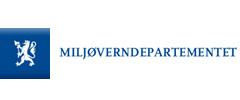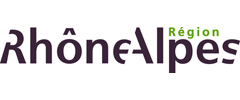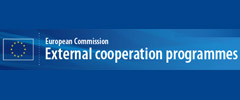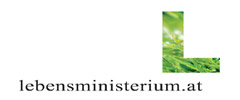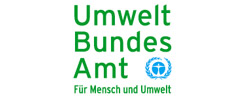Aarhus Convention
Information, public participation and access to justice - useful tools for WECF and its members.
21.12.2005 |Anke Stock

First Meeting of Task Force on Public Participation in International Forums (Geneva, 24/25 November 2005)
Implementation of the Almaty Guidelines on Promoting the Application of the Principles of the Aarhus Convention in International Forums
Download the full report.
WECF took part in the first meeting of the Task Force on Public Participation in International Forums under the umbrella of the European Eco-forum. WECF is a member of the Eco-forum which is an open platform facilitating the co-operation of environmental NGOs in the framework of the Environment for Europe Process, of which the Aarhus Convention forms a part.
The Aarhus Convention was adopted in 1998. It is the first legally binding instrument guaranteeing access to information, public participation in decision-making and justice in environmental matters.
One obligation of the parties to the Aarhus Convention is to promote the application of the principles of the Convention in international environmental decision-making processes and within the framework of international organisations in matters relating to the environment (article 3(7) Aarhus Convention). In May 2005 at the second meeting of the Parties to the Aarhus Convention in Almaty Guidelines on this issue were adopted. The aim of these Guidelines is to provide guidance to the parties on how to fulfil the obligation (see article 1 of the Guidelines).
Paragraph 6 of Decision II/4 establishes a Task Force which was due to meet for the first time on 24/25 November 2005 in Geneva. Its task is to enter into consultations regarding the Guidelines with the relevant international forums within the scope of these Guidelines. The Task Force is supposed to submit a plan of consultation to the 6th Meeting of the Working Group of the Parties in the beginning of April 2006.
In the meeting of the Task Force in November the main topic of the discussions was the preliminary draft plan of consultation which was prepared by the chair of the Task Force with the help of the Aarhus Secretariat. This draft plan of consultation set out the following elements: time schedule, objectives, criteria for selection of international forums, modalities and a draft list of international forums.
Strong discussions evolved about the objective of the consultation process. The United Kingdom and the European Community took both the approach that the consultation process was there to consult other forums about their opinions and views on the Guidelines. Other Parties were of the opinion that the consultation process was more than that, in particular that it should include the promotion of the Guidelines. Another issue that was discussed controversially was the list of the international forums that are to be consulted. In the end it was agreed that a number of selected international forums are to be consulted by a written questionnaire. Some forums shall be consulted through direct dialogue. In addition, the Guidelines are to be widely disseminated to a broad range of relevant international forums.
In spite of many controversies about the objectives of the consultation process and the number of international forums that are to be consulted the meeting was productive and produced a clear draft plan of consultation (soon to be published on the UNECE website) which serves as a good basis for the Working Group to start the consultation process.
Workshop in Kassel 11./12. November 2005: Verbändebeteiligung – Status quo und Perspektiven
Den Bericht als WORD Dokument herunterladen.Die Aarhus-Konvention und die neuen Rechte der Umweltverbände
Am 11. und 12. November 2005 besuchte WECF den Workshop „Verbändebeteiligung – Status quo und Perspektiven“ in Kassel-Wilhelmshöhe. Das Seminar wurde von dem Unabhängigen Institut für Umweltfragen e.V. (UfU) und dem Bund für Umwelt und Naturschutz (BUND) veranstaltet.
Thema der Veranstaltung war die Verbändebeteiligung im deutschen Recht. Dabei ging es um die Beteiligung der Verbände nach § 61 Bundesnaturschutzgesetz und die rechtlichen Auswirkungen der Richtlinie 2003/35/EG - Öffentlichkeitsbeteiligungsrichtlinie, die entgegen ihrer Vorgabe nicht bis zum 25. Juni 2005 in innerstaatliches Recht umgesetz wurde. Die Öffentlichkeitsbeteiligungsrichtlinie setzt die Vorgaben zur Beteiligung der Öffentlichkeit des UNECE-Übereinkommens über den Zugang zu Informationen, die Öffentlichkeitsbeteiligung an Entscheidungsverfahren und den Zugang zu Gerichten in Umweltangelegenheiten - Aarhus Konvention in Gemeinschaftsrecht um. Die Bundesrepublik Deutschland hat die Aarhus Konvention unterzeichnet, doch bisher noch nicht ratifiziert.
Bisher liegen zwei Gesetzentwürfe zur Umsetzung der Öffentlichkeitsbeteiligungsrichtlinie vor: der Entwurf zu einem Öffentlichkeitsbeteiligungsgesetz und der Entwurf zu einem Umweltrechtsbehelfsgesetz. Doch u.a. aufgrund der vorzeitig angesetzten Neuwahlen blieben diese Entwürfe liegen.
Bei einer nicht firstgemäßen Umsetzung einer Richtlinie kommt es laut herrschender Meinung dazu, dass eine Richtlinie unter bestimmten Voraussetzungen Direktwirkung erlangt. Diese Problematik wurde auf dem Seminar in Kassel mit großem Interesse dikutiert. Die Frage ist nun, welche Verbände unabhängig von der Anerkennungsvoraussetzung des Bundesnaturschutzgesetzes Klagebefugnis erhalten und ob und wie diese Verbände ihr neu gewonnenes Klagerecht einsetzen. Vereinzelte Ideen wurden vorgetragen, doch es wurden keine konkreten Vorschläge gemacht.
Mit der Aufnahme der Regierungsgeschäfte der grossen Koalition wird bald auch der Gesetzgebungsprozess zur Umsetzung der Öffentlichkeitsbeteiligungsrichtlinie wieder aufgenommen werden. Wie ein Mitarbeiter des Bundesumweltministeriums bemerkte, ist es wahrscheinlich, dass ein Gesetzespaket von drei Gesetzen vorgelegt wird, welches die Entwürfe des Öffentlichkeitsbeteiligungsgesetzes, des Umweltrechtsbehelfsgesetzes und des Aarhus-Vertragsgesetzes beinhaltet. Es wird wichtig sein, die Wideraufnahme des Gesetzgebungsprozesses genau zu beobachten und eventuelle Änderungen der Entwürfe gegebenenfalls kritisch zu kommentieren.














